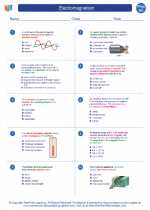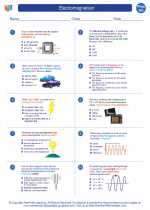Autotrophs
An autotroph is an organism that is able to produce its own food using energy from sunlight or inorganic compounds. They are the primary producers in most ecosystems and form the base of the food chain.
Types of Autotrophs
There are two main types of autotrophs:
- Photosynthetic Autotrophs: These organisms use sunlight to convert carbon dioxide and water into glucose and oxygen through the process of photosynthesis. Examples include plants, algae, and some bacteria.
- Chemosynthetic Autotrophs: These organisms obtain energy by oxidizing inorganic substances such as hydrogen sulfide or ammonia. They are commonly found in environments such as deep-sea hydrothermal vents and certain soil bacteria.
Adaptations of Autotrophs
Autotrophs have several adaptations that enable them to carry out photosynthesis or chemosynthesis:
- Chlorophyll: Photosynthetic autotrophs contain chlorophyll, a green pigment that absorbs sunlight and initiates the process of photosynthesis.
- Specialized Organelles: Photosynthetic organisms have specialized organelles called chloroplasts, where photosynthesis takes place.
- Metabolic Pathways: Autotrophs have unique metabolic pathways to convert inorganic compounds into organic molecules.
Role in Ecosystems
Autotrophs play a crucial role in ecosystems by producing organic compounds that serve as food for heterotrophs, which are organisms that cannot produce their own food. The energy produced by autotrophs is transferred through the food chain, ultimately sustaining all life on Earth.
Study Tips
When studying autotrophs, it's important to understand the process of photosynthesis and chemosynthesis, as well as the different types of autotrophs and their adaptations. Here are some tips for effective studying:
- Review the key concepts and definitions related to autotrophs.
- Practice drawing and labeling the process of photosynthesis in plants.
- Compare and contrast photosynthetic and chemosynthetic autotrophs.
- Explore examples of autotrophs in different ecosystems and their ecological roles.
By understanding the role and adaptations of autotrophs, you can gain a deeper insight into the interconnectedness of life on Earth.
[Autotrophs] Related Worksheets and Study Guides:
.◂Physics Worksheets and Study Guides High School. Electromagnetism

 Worksheet/Answer key
Worksheet/Answer key
 Worksheet/Answer key
Worksheet/Answer key
